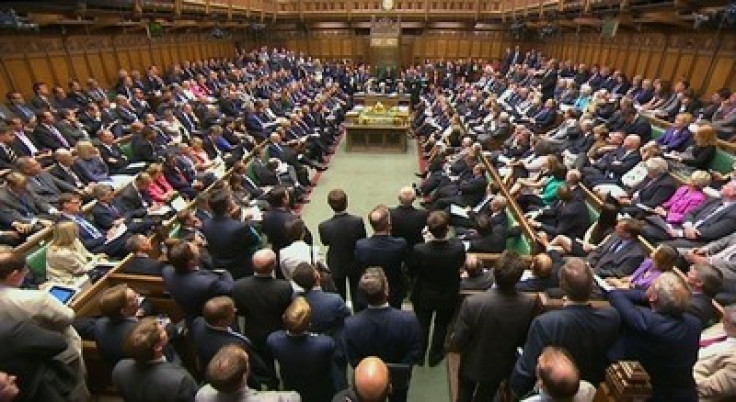UK MPs May Want Planned 11% Pay Rise But They Won't Get It

For decades, MPs were told by their party leaders there was no way the public would swallow them having big pay rises and, with a nudge and a wink, they were told to exploit the expenses system instead.
The result was politicians' salaries lost relative value and the expenses bill went through the roof. And, thanks to its shadowy nature, some MPs saw the system as a great opportunity to rip off taxpayers to a breath-taking extent. Think of duck houses, moats, fake bills and "flipping" second homes.
The upshot was the expenses scandal of 2009 that rocked parliament, drove MPs to the top of the list of the public's most reviled individuals and saw some sent to prison.
It also led to the creation of an independent body to set MPs' pay and deny them the power to set their own salaries. In future everything would be clean, above board and transparent.
Now, with supreme irony, the Independent Parliamentary Standards Authority (Ipsa), is to recommend an inflation-busting 11% increase for all MPs from May 2015. Ipsa has quite possibly signed its own death warrant.
It has attempted to balance its recommendation by further tightening up on expenses for items such as taxis and hotels, and even tea and biscuits. Pensions will also be reformed.
But all three party leaders have denounced the suggestion, which would see a backbencher earning £74,000 a year, and insisted if it goes ahead they will hand the money back to the Treasury.
Prime Minister David Cameron has insisted he believes the cost of politics should go down not up and Labour leader Ed Miliband has said he would cancel the planned rise - which raises the prospect of Ipsa being abolished or reformed, or MPs again setting their own pay.
Shadow Chancellor Ed Balls described it as "ridiculous" adding: "It has been taken out of any context of the real world. It is preposterous we should be having this discussion."
Treasury Secretary Danny Alexander said it was "utterly incomprehensible" that Ipsa was recommending such a "wholly inappropriate" rise. The betting in Westminster, then, is that this simply will not happen.
Hackney MP Diane Abbott has said as much, declaring that questions over who will or will not take the cash are irrelevant, because, "It is not going to happen."
Individual MPs, however, are far less united and there are many in Westminster who believe that the rise is warranted and that Ipsa should be allowed to do exactly what it was set up to do. But even they realise this is a hugely difficult proposal to sell to their electors.
The notion that without a big pay rise, MPs might be tempted to start fiddling their expenses again is unlikely to cut much ice with voters who suffering after years of pay restraint and, in the public sector, freezes.
But the idea that individual would-be MPs could go into the 2015 election campaign saying, when challenged - and they most certainly will be challenged - that they back the increase to almost three times the national average wage, is unthinkable.
There is a big question about the level of MPs' pay and where it should be pitched in relation to other comparable jobs, to encourage more people into politics.
Ipsa reported that two-thirds of MPs believe they are underpaid and chairman Sir Ian Kennedy has insisted politicians' pay must "catch up" after years of being suppressed. But there is no evidence pay puts people off entering parliament, particularly when compared to other obstacles.
However, there is plenty of evidence that individuals can earn far more outside parliament and a number of the 2010 intake of MPs have already announced they will not stand again in 2015. They never admit it, but it is often because they want to make more money, and probably enjoy a more sympathetic public image, than they can in Westminster.
Politicians have really shot themselves in the foot over this one. There may indeed be a debate to be had over their pay but, thanks to the expenses scandal and the current anti-politician sentiment among voters, there could not be a worse time to have that conversation.
© Copyright IBTimes 2024. All rights reserved.






